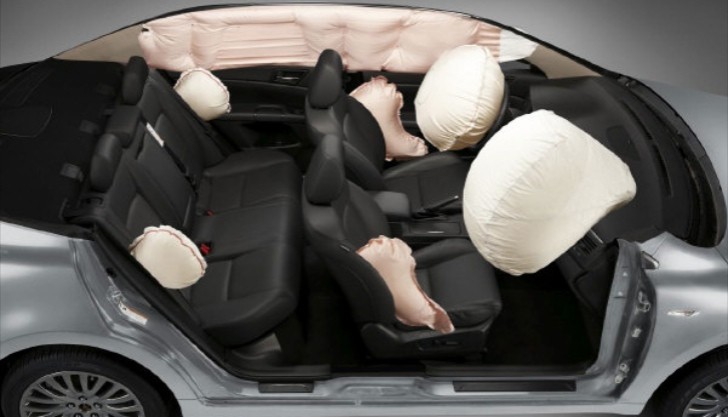The Takata airbag saga just doesn’t seem to be coming to an end. Just yesterday we were telling you that BMW is currently looking into the possibility of replacing the driver side airbags on its recalled cars as well. Today, more news coming in seem to the confirming that theory.
According to Automotive News, the German manufacturer wants to help the Japanese company deliver the replacement inflators faster and will assist them in moving the production facilities from Mexico to Germany. However, there’s a catch. It seems like the increased production will be used solely for BMW’s needs.
At the moment, Takata is manufacturing the new inflators at its plant in Monclova, Mexico. The Japanese also have another plant in Freiberg, Germany but this one is not fitted to build the aforementioned parts but instead is making other electronics. BMW wants to help re-equip this plant with two assembly lines specifically for new inflators.
As we told you yesterday, at the moment, the Japanese can make around 200 inflators an hour on one production line and has only two of them in use. That means at the current rate, it could take up to five months to build just 1 million new ones. Since the demand sits at the 32 million mark, you can imagine how long this recall campaign could last without some new measures.
The news was confirmed by Takata spokesman Alby Berman that said that indeed, the work was being moved from Mexico to Germany but only for BMW vehicles. Furthermore, he said that work in this regard is currently underway, hoping to boost production capacity.
If that’s the case, a new batch of Takata inflators could arrive at dealerships in mid-December, helping out those looking for a replacement part. At the moment, all dealerships worldwide are waiting for the new parts as orders have already been placed.
Honda, Toyota and Ford were amongst the first that considered this option. However, the problem is, even other suppliers might struggle to keep up with the demand. If the supplied parts were also to be built to the exact specifications of the Takata ones (therefore eliminating the need to adapt their own parts to the cars) the implementation of the new specifics could take up to one year.
That prompted Mazda, Nissan and General Motors to deem this solution unviable. Others seem to agree. It seems like everyone will end up waiting on Takata to solve the supply problems.
At the moment, Takata is manufacturing the new inflators at its plant in Monclova, Mexico. The Japanese also have another plant in Freiberg, Germany but this one is not fitted to build the aforementioned parts but instead is making other electronics. BMW wants to help re-equip this plant with two assembly lines specifically for new inflators.
As we told you yesterday, at the moment, the Japanese can make around 200 inflators an hour on one production line and has only two of them in use. That means at the current rate, it could take up to five months to build just 1 million new ones. Since the demand sits at the 32 million mark, you can imagine how long this recall campaign could last without some new measures.
The news was confirmed by Takata spokesman Alby Berman that said that indeed, the work was being moved from Mexico to Germany but only for BMW vehicles. Furthermore, he said that work in this regard is currently underway, hoping to boost production capacity.
If that’s the case, a new batch of Takata inflators could arrive at dealerships in mid-December, helping out those looking for a replacement part. At the moment, all dealerships worldwide are waiting for the new parts as orders have already been placed.
Other possibilities
Since BMW isn’t the only manufacturer that faces this situation, other manufacturers have come up with various propositions. Some considered using parts from the competition but soon realized that they might require some more extensive changes done to the cars.Honda, Toyota and Ford were amongst the first that considered this option. However, the problem is, even other suppliers might struggle to keep up with the demand. If the supplied parts were also to be built to the exact specifications of the Takata ones (therefore eliminating the need to adapt their own parts to the cars) the implementation of the new specifics could take up to one year.
That prompted Mazda, Nissan and General Motors to deem this solution unviable. Others seem to agree. It seems like everyone will end up waiting on Takata to solve the supply problems.
